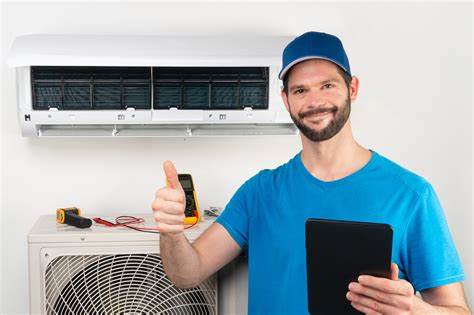
Replacing an old air conditioning (AC) system with a new, energy-efficient model can significantly impact your home’s energy consumption and cost. For Florida homeowners facing rising utility bills and an aging AC system, understanding the potential energy savings from a replacement can help justify the investment. Here’s a detailed look at how upgrading your AC system can enhance energy efficiency and reduce costs.
Increased Energy Efficiency
Newer AC systems are designed with advanced technology that improves energy efficiency:
- SEER Ratings: The Seasonal Energy Efficiency Ratio (SEER) measures an AC unit’s cooling efficiency. Newer models often have higher SEER ratings compared to older systems, meaning they use less energy to provide the same level of cooling.
- Inverter Technology: Modern systems may include inverter technology, which allows the compressor to adjust its speed based on cooling needs. This feature reduces energy consumption compared to older systems that operate at a fixed speed.
Reduced Energy Consumption
An upgraded AC system can lower your overall energy use:
- Improved Insulation and Sealing: Newer systems often come with better insulation and sealing, reducing energy loss and improving efficiency.
- Enhanced Performance: Advanced features like variable-speed fans and better heat exchange processes ensure that the system operates more efficiently, consuming less energy to maintain desired temperatures.
Lower Utility Bills
Replacing an outdated AC system can lead to noticeable savings on your utility bills:
- Reduced Operating Costs: Higher efficiency means the system uses less electricity to cool your home, resulting in lower monthly energy bills.
- Improved Reliability: New systems are less likely to experience breakdowns or require frequent repairs, which can further reduce maintenance costs and unexpected expenses.
Enhanced System Longevity
A new AC unit can provide long-term savings through improved durability:
- Extended Lifespan: Modern AC systems are built to last longer and often come with extended warranties, reducing the likelihood of costly replacements or repairs in the near future.
- Fewer Breakdowns: New systems are less prone to mechanical failures and inefficiencies, which means fewer emergency repair costs and less downtime.
Environmental Benefits
Upgrading to a more efficient AC system can also have positive environmental effects:
- Lower Carbon Footprint: By consuming less energy, new AC systems help reduce greenhouse gas emissions associated with electricity production.
- Compliance with Regulations: Newer systems often meet or exceed current energy efficiency standards, contributing to broader environmental goals and regulations.
Increased Property Value
A modern, efficient AC system can enhance your home’s value:
- Attractive to Buyers: Potential buyers often look for energy-efficient features when purchasing a home. An upgraded AC system can make your property more appealing and potentially command a higher sale price.
- Future-Proofing: Investing in a new system can position your home for future energy efficiency trends and technologies, making it a more attractive option in a competitive market.
Rebates and Incentives
Many utility companies and government programs offer incentives for installing energy-efficient systems:
- Utility Rebates: Check with your local utility company for rebates or discounts on new, high-efficiency AC units.
- Tax Credits: Some government programs provide tax credits for energy-efficient home improvements, which can help offset the initial cost of replacing your AC system.
Conclusion
Replacing an old air conditioning system with a new, energy-efficient model can lead to significant energy savings, lower utility bills, and enhanced comfort. By improving efficiency, reducing energy consumption, and extending the system’s lifespan, a new AC unit offers both immediate and long-term benefits. For Florida homeowners, where cooling costs can be substantial, investing in a modern AC system is a practical step toward greater energy efficiency and cost savings.